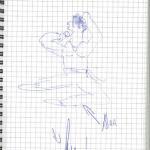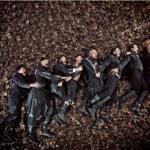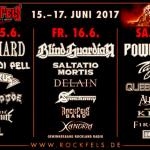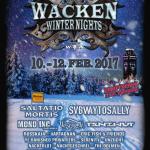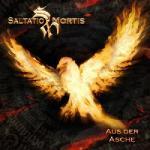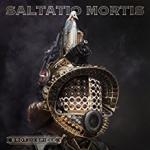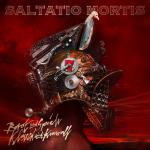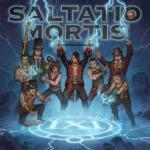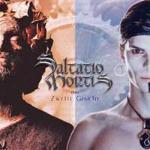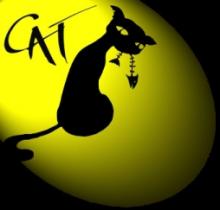SALTATIO MORTIS
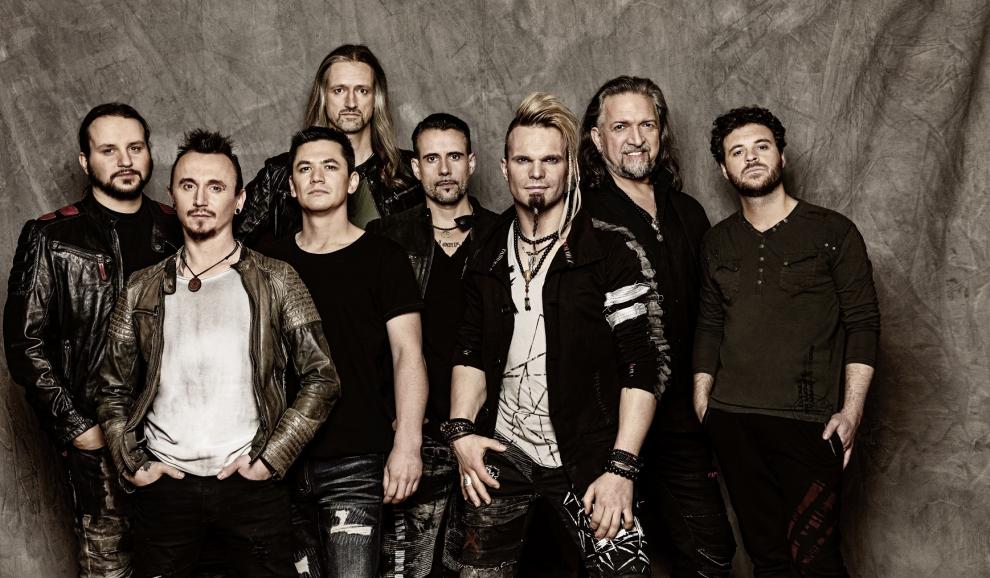 Biografie
BiografieOne winter’s night in the year 2000 a group of musicians came together unified by a love of Folk music at a medieval fair. Despite their various musical backgrounds, ranging from Metal to Folk, they joined forces to conquer the stages with mere pipes and drums. The band chose the name Saltatio Mortis – a reference to the portrayal of death in medieval art. With the intention to play louder and better than Death itself, the gleemen used their instruments against the Grim Reaper and chose to live by their motto, “He who dances, does not die”. The original line-up comprised Alea, Falk, Lasterbalk, Thoron, Ungemach, Dominor, and Fackel.
The septet performed numerous acoustic shows at medieval fairs and only one year after the formation of the band, Saltatio Mortis released their first album “Tavernakel”. This release was kind of a top ten of medieval fair music. However, the band quickly decided not to limit themselves to medieval music and looked to other genres in order to express themselves in a fascinating crossover of styles.
Their second album “Das Zweite Gesicht” was released by Napalm Records in 2002 and presented the fans with a combination of medieval, modern, and electronic music. At the same time, Alea became the band’s frontman. The German lyrics dealt with love, passion, life, and death, and produced the first hit with the track “Dunkler Engel”. All in all, their modern debut was very successful and “Das Zweite Gesicht” entered the German Alternative charts.
Due to the more modern/rock approach of the new album, the gleemen were able to play concerts outside the medieval circuit. Saltatio Mortis established themselves as a crowd pleaser alongside acts like Schandmaul, Tanzwut, and in Extremo, performing at festivals such as Castle Rock or Feuertanz. Nevertheless, the band did not lose sight of their roots, releasing an acoustic album in 2003. “Heptessenz” consisted of medieval tunes and made its way into the Alternative Charts and the readers’ poll of Germany’s Orkus magazine.
In the coming year, Saltatio Mortis entered Lutz Demmler’s (Umbra et Imago) studio. The new record “Erwachen” surprised the band’s fans with a lot more rock and the next big hit “Falsche Freunde”. After its release, the band supported Subway to Sally and played at numerous festivals including Wave Gotik Treffen and M’era Luna. Saltatio Mortis gained momentum as their musical direction turned toward rock and electronic elements.
Saltatio Mortis’ trademark style was refined on the 2005 release “Des Königs Henker”. The album was produced by Thomas Heimann-Troisen (Schandmaul, In Extremo). The song material was heavier and indulged a more guitar-oriented vibe. The finishing touches were provided by sophisticated and intelligent lyrics and the combination of medieval and modern elements. More and more people outside the Saltatio Mortis community took an interest in the band. “Des Königs Henker” entered the Media Control album charts at number 54 and the band was booked to headline numerous festivals. In the same year, the live album “Manufactum” was released, capturing the magic of a medieval evening with the gleemen.
2006 saw a major change in the band’s line-up. Fackel, Ungemach and Dominor left the band due to personal reasons. They were replaced by Mik El Angelo (stringed instruments), El Silbador (bagpipes, shawm), Bruder Frank (bass) and Cordoban der Verspielte (bagpipes, flutes and shawm).
With this new line-up, the band entered the studio in 2007 and followed the sonic path of “Des Königs Henker”. The result was “Aus der Asche”, which presented fans with a mix of rock and medieval sounds, as well as inspired lyrics that dealt with autobiographical and social topics by drummer Lasterbalk. Both old and new fans were taken by storm, catapulting “Aus der Asche” into the Media Control album charts at a sensational number 29.
Mik El Angelo left after one year and was replaced by SaMoel. The turn of the year 2008/2009 saw yet another major change in the line-up as Cordoban der Verspielte and Thoron left the band to explore new musical genres. Saltatio Mortis now appears as a sextet and is supported by Jean Méchant at medieval fairs.
Quelle: http://www.napalmrecords.com/hp_promo.php?bioID=70&osCsid=6ba78efc9b1cddecd53dc172ce241f12Discografie2001 - Tavernakel
2002 - Das Zweite Gesicht
2003 - Heptessenz - Marktmusik Des Mittelalters
2003 - Falsche Freunde
2004 - Erwachen
2005 - Des Königs Henker
2005 - Manufactum (Live)
2007 - Aus Der Asche
2009 - Wer Wind Saet
2010 - Manufactum II (Live)
2011 - Sturm Aufs Paradies
2011 - 10 Jahre Wild Und Frei (Live)
2013 - Das Schwarze IxI
2013 - Manufactum III (Live)
2015 - Zirkus Zeitgeist / Zirkus Zeitgeist – Ohne Strom Und Stecker
2016 - Zirkus Zeitgeist - Live Aus Der Großen Freiheit (Live)
2018 - Brot Und Spiele / Brot Und Spiele - Klassik & Krawall
2020 - Für Immer Frei
www

